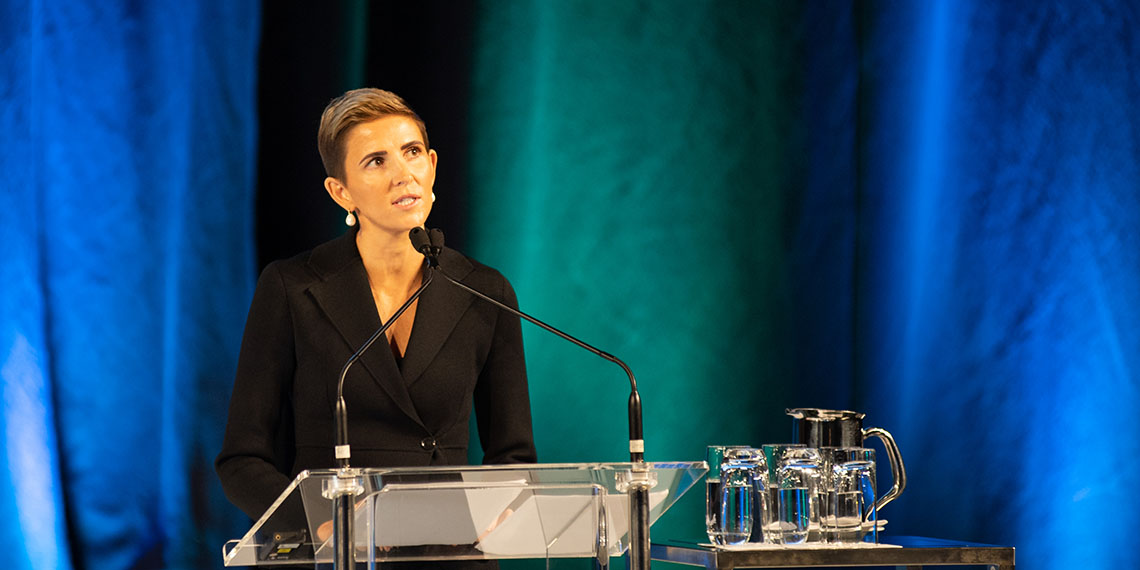Shifting the economy from linear to circular

The water sector are already leaders in the circular economy and must take a leadership role for other industries, says circular economy thought leader Associate Professor Ashleigh Morris.
Morris, the CEO and co-founder of Coreo, delivered a keynote address to Ozwater'22 delegates on Tuesday morning, stressing the role the water community could play in shifting the thinking, systems and processes that underpin our linear economy to a circular economy.
“The water cycle is naturally circular,” Morris said.
“A basic understanding of the three circular economic principles should allow us to turn the tide: designing out waste and pollution; keeping products and materials at the highest value for as long as possible; and regenerating our natural systems.”
In a linear economy, waste from manufacturing and human industry is treated as a burden to disposed of, risking environmental systems. Transitioning to circular, said Morris, would enable such waste to be minimised and any excess pulled back round into the start of the cycle.
“We should be challenging upstream stakeholders to incorporate ethical and environmental strategies into their procurement,” she said. “We can then ensure the most efficient amounts of energy, minerals and chemicals are being used across Australia."
The second principle involves elevating our appreciation for the inherent value of water.
“Understanding the embodied water content of all products and services would allow us to create partnerships and supply routes that act as stewards for water circulation and keep this precious resource at its highest social, environmental and financial value,” she said.
“We need to be thinking at a systems level about water as a logistics network. What are you losing by not leveraging water as a holistic enabler for energy, as a food systems enabler, a land system enabler?”
Lastly, Morris outlined the environmental and social benefits, acknowledging that, in a linear economy, water is a convenience.
“The final circular principle – regenerating our natural systems – requires us to account for the water’s role in the whole economy, not just financially but environmentally and socially too. Given that water is the great connector, we have the opportunity to reach out and influence other industries.”
The industry currently places a high emphasis on balancing the ecosystem, returning water to soil, reducing the impact of wastewater, and so on – but Morris questioned whether other industries, such as farming, healthcare and banking, were given the same focus. At a systems level they’re all connected, she said, and so action in isolation is counterintuitive.
“Even our internet relies on data centres that rely on water to cool their operation,” she said. “Yet we treat the water too often as a launderer of other industries – the waste part of the broken take-make equation of today’s economy.”
Shifting from a linear economy to a circular one provides an opportunity to enhance understanding of the integrated nature of water systems.
“I believe one day very soon we are going to calculate embodied water the same as we are beginning to calculate embodied carbon,” she said.
“Without water there is no economy. Water is a prime position to change how the entire economy works.”

.jpg?width=352&name=53559316925_90f0863830_k%20(1).jpg)
